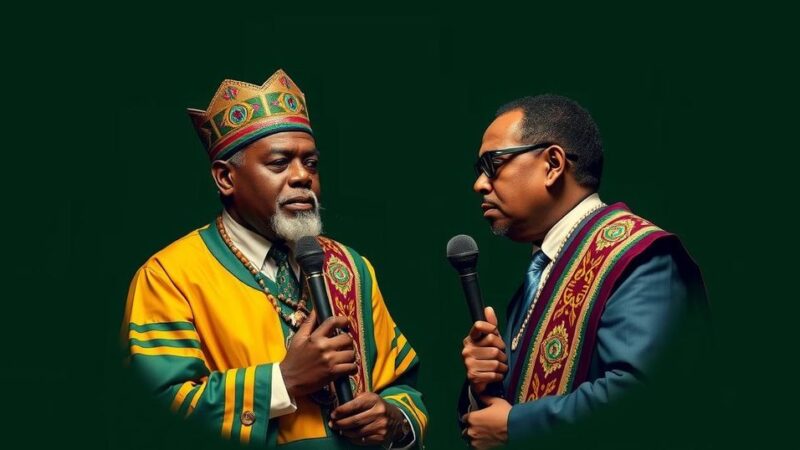Tunisians voted in presidential elections on October 6, 2024, amidst low voter participation, with turnout below 30%. President Kais Saied, who seeks re-election, faces challenges from imprisoned businessman Ayachi Zammel and leftist Zouhair Maghzaoui. Many notable candidates were blocked from running, and there was significant public apathy, raising questions about the election’s legitimacy.
On October 6, 2024, Tunisians participated in presidential elections amid significant voter apathy, reflected in a turnout that remained below 30% in the capital, Tunis. The election featured President Kais Saied running for re-election against imprisoned businessman Ayachi Zammel and leftist candidate Zouhair Maghzaoui, who had formerly supported Saied. The electoral environment was marked by extensive arrests of Saied’s potential challengers during the campaign, with notable candidates barred from participation by an election commission appointed by Saied himself. As voting occurred, the streets of Tunis bore few indications of an active election. Kais Saied, who rose to power amidst dissatisfaction with the political elite following the Arab Spring, is projected to secure an easy victory, especially with his strongest opponents incapacitated. His first term has seen economic hardships and significant constitutional changes granting him expanded executive powers. Despite a notable boycott from the opposition, some citizens voiced their commitment to participate in the electoral process, insisting that voting is a civic responsibility. When polls closed, approximately 2.7 million voters had cast their ballots, marking a turnout of 27.7%, a decline from 49% in the previous election but an improvement from 12% in the prior year’s parliamentary contest. The election’s legitimacy has been questioned, particularly following the exclusion of certain candidates and the arrest of Zammel on allegations of electoral fraud, which his legal counsel disputed.
In the context of Tunisia’s journey since the Arab Spring, the country has undergone significant political transitions. Following the ousting of longtime dictator Zine El Abidine Ben Ali in 2011, Tunisia was hailed as a pioneer of democratic processes in the region. However, President Kais Saied’s administration has faced criticism for what many observers deem an authoritarian shift. Saied has leveraged emergency powers to dissolve parliament, amend the constitution, and solidify presidential authority, prompting widespread protests and a divided political landscape. Many opposition figures have also been arrested, raising alarms about political freedoms and electoral fairness.
The presidential elections in Tunisia reflect not only the political dynamics currently shaping the country but also the public’s waning faith in the electoral process itself. With significant portions of the electorate remaining disengaged and key challengers sidelined, the legitimacy of the upcoming results is likely to be a point of contention. As Tunisia navigates this critical juncture, the implications of these elections will resonate beyond its borders, influencing discussions on democracy and governance in the region.
Original Source: apnews.com






